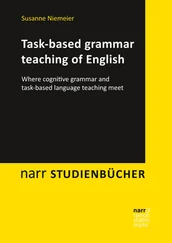Turn the heat to high.
Smash the garlic.
Peel the garlic.
Dice the garlic.
Put oil in the pan.
Turn the heat to low.
Put the garlic in the pan.
Add basil and black pepper.
Chop the tomatoes.
Add the tomatoes.
Put the pasta in the boiling water.
Stir the pasta.
Drain the pasta.
Put the pasta on a plate.
Put the sauce on the pasta.
I performed the actions with the commands a second time, then I asked them if they were ready. They nodded and I motioned for them to stand up. I gave them the commands and they performed the actions.
I stood in front of Sabeen and told her to smash the garlic. She repeated the command to make sure she’d heard me right.
Her breath was bad. It was the last week of Ramadan and she was still fasting. The same thing happened to me on Yom Kippur.
She held her hand up as if she were balancing a bulb of garlic on her fingertips, then she tensed her fingers to indicate she was gripping it and put it on the table. She held out her right hand flat as if it were a knife, placed it over the bulb of garlic, and struck it with the heel of her left hand.
I moved to Zana and told her to peel the garlic. She picked up the bulb and with two fingers she separated a clove, then made a peeling motion, pinching her fingers together and twisting her wrist.
I moved to Noor, Zana’s sister, and told her to dice the garlic. She narrowed her eyes. She was thinking.
She looked at Ramesh. He held his right hand rigid as if it were a knife. He tapped the table in a quick, staccato rhythm and she imitated him. Then she looked at me to confirm she’d gotten it right.
I motioned for everyone to sit down.
I want you to work with the person sitting next to you, I said. I want you to put the sentences in order.
I gave each pair an envelope with the commands. Each command was on a separate strip of paper. They spread them out on the table, picking up each one and reading it like it was a fortune, then putting it in the place they thought it occupied in the sequence, understanding that it was provisional, a placeholder until they’d gone through all the commands and made sure there wasn’t a better choice.
Even pairs who spoke the same language were quiet now, moving the commands around until they reached a silent agreement. I didn’t offer any assistance, and they didn’t ask.
When each pair had decided on a sequence they felt good about I went back to the utility table and pantomimed the whole sequence again, not saying a word. I paused after each action so that if they’d placed a command out of order they had plenty of time to move it.
Yes? I said.
By yes I meant May I have your permission to go on to the next step?
Yes, they said.
Now the word yes meant Please proceed, sir .
This time I said the commands without performing them. They listened and read along, repeating the words just under their breath.
Zana came to the front of the room. She stood at the utility table, staring at her sister and the other students. She was wearing a navy trench coat, cinched at the waist. Her brown hijab went straight out in back, which meant she had a long ponytail she was tying low.
Most young women from Baghdad still wore their hijabs in the Kaleeji style. Kaleeji meant “from the gulf.” It was like a beehive, or a bouffant hijab. It began as a way for women to show the length of their hair without actually revealing it. They made high ponytails so their hijabs stood up in the back, or they wrapped their hair on top of their heads before covering it. The look had become so popular that women with short hair were fastening cardboard cones to their heads to achieve the same effect.
We went around the room and each student gave Zana a command and she performed the action. When she was finished she went back to her seat and everyone clapped. Then Noor came up. She was wearing a black unitard and a black silk hijab. She didn’t tie her hair at all, so her hijab lay flat against her neck.
This time we went in the opposite direction, so each person had a chance to give a new command; then they put the commands back in the envelopes and gave the envelopes to me. Then Ramesh came to the front.
Tell him what to do, I said.
He looked like a Bollywood movie star: dark eyes, cleft chin, pouty mouth. He was a first-generation refugee: Like all citizens of Bhutan of Nepali ancestry, his parents had been forced to leave. They moved to a camp in eastern Nepal, where Ramesh was born and raised. He’d never known Bhutan and never would.
Noor wanted to go first but she’d forgotten the command. I asked the class what she could say and they told her. She shook her finger at Ramesh.
Fill the pot with water, she said.
He picked up the pot, placed it under the tap, and turned on the water.
Noor and Zana came to my office after class. Zana did all the talking, even though she was the younger one.
My sister want divorce, she said. You can help us?
I was shocked. I’d done their intakes only a few months before. They’d told me they were from Jordan and I hadn’t questioned it; young women from Baghdad often said this. What they didn’t say, but explained to me now, was that their uncle had been murdered for working as a phlebotomist for the Americans inside the Green Zone, and that their father had been injured in a car-bomb blast outside a mosque. That’s when the family fled to Amman, draining their savings on a one-room apartment on the outskirts of the city, Noor and Zana keeping themselves busy by studying for A levels they would never take.
It was during this time that Noor began emailing with Ahmed, the son of her father’s former business associate. Ahmed was an enterprising young man who’d owned an internet café in Baghdad. He and his family had been resettled to the United States.
They corresponded for a year and then Ahmed asked her father for her hand in marriage. He had to do it over the phone, in defiance of Iraqi custom, but given the circumstances—there were no longer any paternal cousins who were eligible candidates—her father gave his consent.
Two years later their family was resettled to the United States, and when they arrived Noor couldn’t wait to see Ahmed. They got married in a mosque and had their reception at the Lions Club. She went to live with his family, and that’s when the trouble began.
He angry all time, Zana said. He yell. His mother yell. Noor want get apartment, but he say no.
Have you talked to your caseworker?
She no help. She say my sister stay with him.
Noor said something to Zana in Arabic, but Zana didn’t translate.
I know a good lawyer, I said.
When I came in the next day Sabeen was waiting for me in the hallway outside the classroom.
My husband he want go back Iraq, she said.
But it’s so dangerous, I said.
I no go. My children love the life here. Anyway, he wait for green card.
She turned away, looking down the hall in the direction of the water cooler, and for a moment I felt the panic I’d felt when I first moved the program here. It was the perfect space for us: a former parochial school inside a Neo-Gothic church close to downtown, with no iconography in the public spaces, except for one red cross around the corner from the cooler, outside the transept of the main sanctuary. That cross had me so worried: I was afraid they wouldn’t want to come into the building if they saw it. But it turned out they didn’t care.
I unlocked the classroom door and we went inside. Sabeen took a piece of paper out of her pocket and unfolded it.
I bring for you, she said.
She showed me a picture of a tool, but I had no idea what it was. Since we were learning words for kitchen utensils, I assumed it was a kitchen utensil:
Читать дальше












